


Antminer S19 hash board commonly used chips include ASIC chip, temperature sensor chip, memory chip, controller chip, converter chip, etc. What are their position marks and silkscreen on the hash board? And what role does it play in this? Let's find out together through this article!
ASIC chip: BM1398 ASIC chip
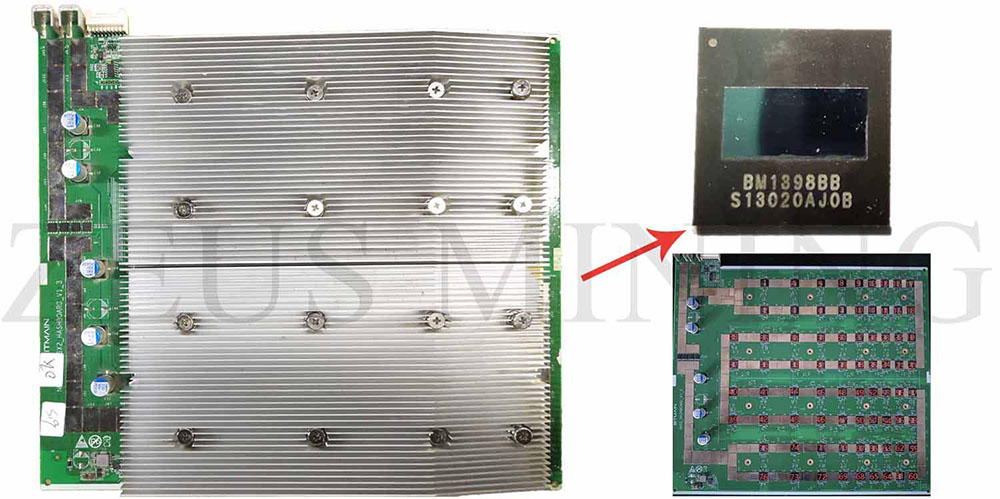
Under the modified heat sink of this one-piece clip design is the ASIC chip of the S19 hash board. A single S19 hash board carries 76 BM1398BB ASIC chips, which are mainly responsible for the hash rate calculation of the whole miner.
Converter chip: U2E
Position mark: U1, U2
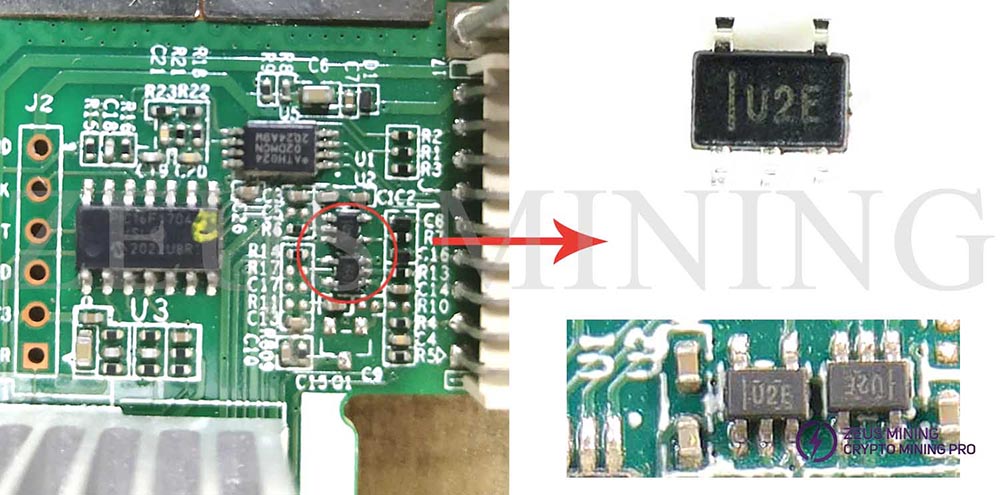
The SN74AUP1T34DCKR U2E chip is a voltage-level translator with SC70-5 package technology.
Microcontroller chip: PIC16F1704
Position mark: U3
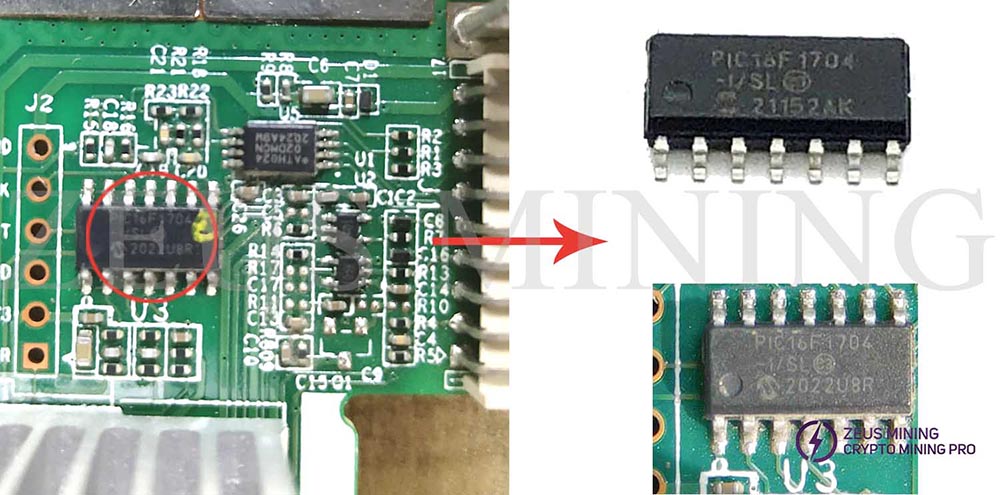
The PIC16F1704 is an 8-bit microcontroller processor mainly used for checking PIC circuits. For example, when the PIC pin voltage does not reach the standard value, you can re-program the PIC by checking whether the connection between the test fixture cable and the hash board is normal. The chip operating temperature range is -40°C to 85°C.
EEPROM chip: ATH02402DMCN
Position mark: U5
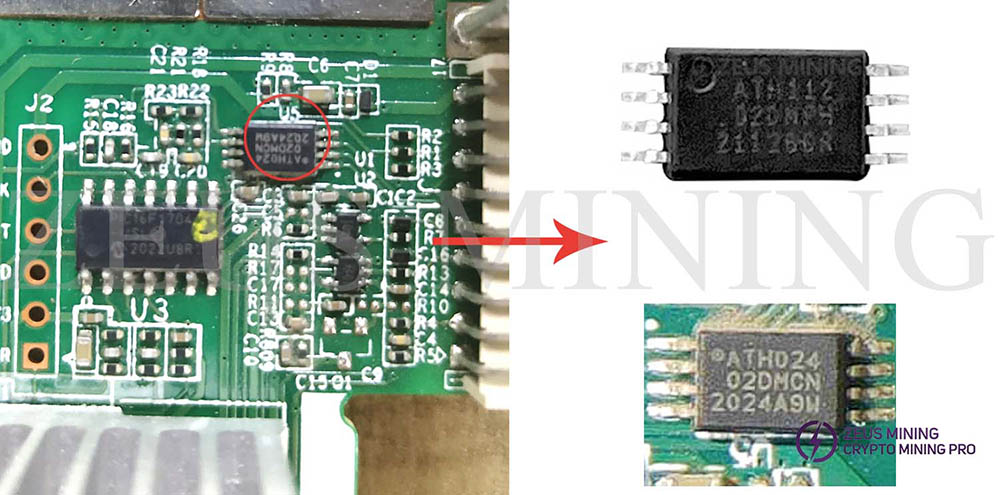
The ATH91502DMCN provides 2,048-bit serial electrically erasable and programmable read-only memory. It adopts an 8-pin TSSOP package, with a working voltage between 1.7V and 3.6V. In addition, the chip has a built-in bidirectional data transmission protocol, storing the data for a long time.
MOS chip: TPHR9003NL
Position markers: Q2, Q3, Q6, Q7
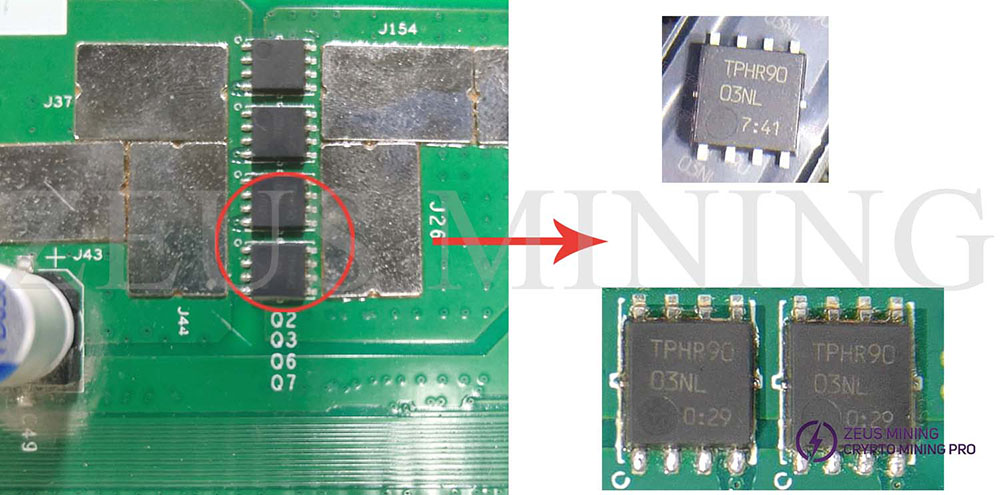
The MOS chip TPHR9003NL is mainly used to check the voltage output in the voltage domain. By measuring the output of the power supply terminal of the hash board, it can judge whether the MOS is short-circuited (measure the resistance between pins 1, 4, and 8). There is generally a domain voltage output if there is a 14V power supply. Under normal circumstances, the voltage is unstable, and the lightning surge will cause damage to the MOS.
Boost chip: MPSK181517DR
Position marker: U9
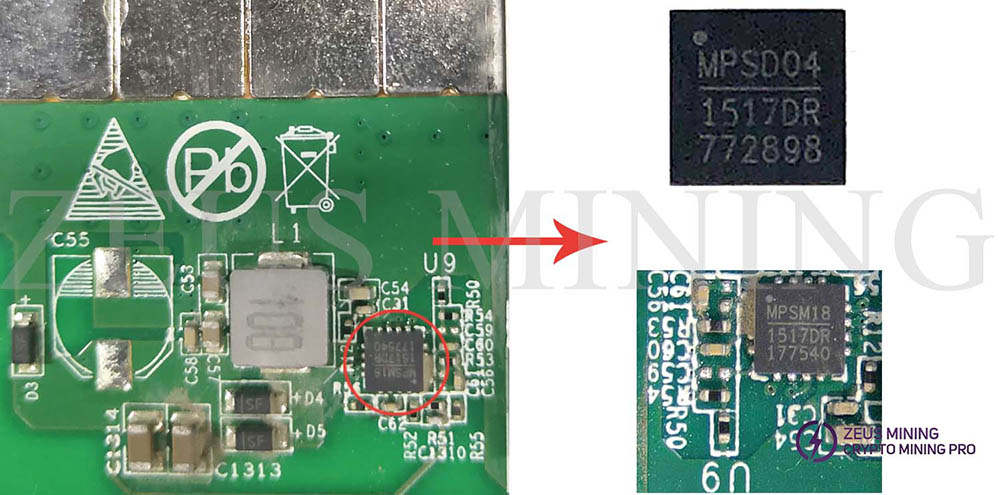
The MPSK391517DR chip is a boost converter chip in a tiny 4mm*4mm 16-pin QFN package technology. The MP1517DR regulates the output voltage to 25V with up to 95% efficiency. The die temperature operating range is –40°C to +85°C. Its current mode regulation and external compensation components allow the MP1517DR control loop to be optimized over a wide range of input, output and load current conditions.
Boost converter chip: SY7208
Position marker: U10
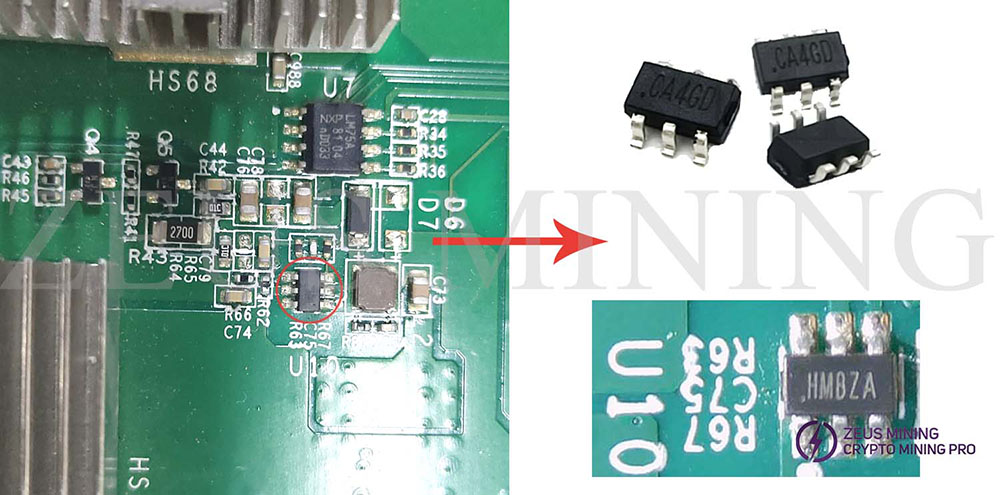
The SY7208 is a high-efficiency, integrated MOSFET current mode and fixed frequency boost converter in a compact SOT23-6 package. The chip voltage input range is between 3V and 25V, and the operating temperature range is -40°C to 85°C. In addition, the chip has built-in under-voltage lockout protection, over-temperature protection, internal soft-start, etc.
Temperature sensor chip: LM75A
Position markers: U4, U6, U7, U8
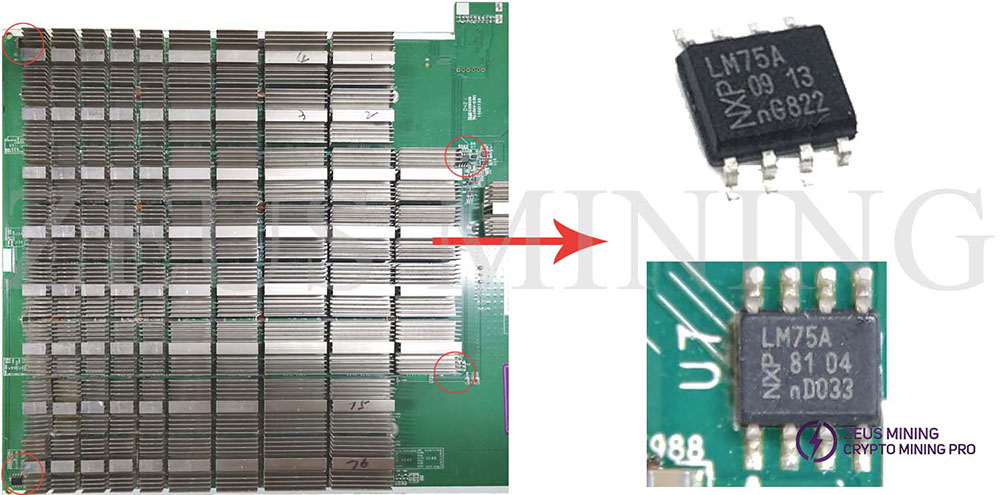
The four temperature-sensing chips of the S19 hash board are all located on the back of the hash board to sense the temperature of the hash board. It is a high-speed 12C interface temperature sensor with a temperature operating range of -55°C to +125°C, an accuracy of 0.125°C, and an operating voltage between 2.8V and 5.5V. In addition, the LM75A has 3 selectable logical address pins, allowing up to 8 devices to be connected simultaneously.
Voltage regulator chip: MP2019
Position marker: U146
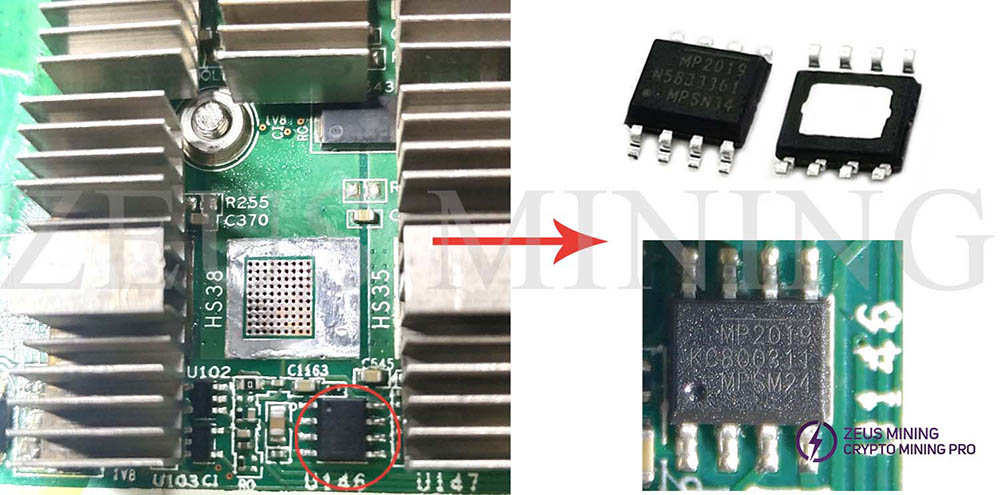
The MP2019 is a 40V 300mA, low quiescent current adjustable output linear regulator in a SOP8 package with a voltage input range of 3V to 40V and an operating temperature of -40°C to +125°C. Output accuracy over the range is ±2%, thermal shutdown, and short circuit protection.
Voltage regulator chip: SGM2036-ADJ
Position marker: U103
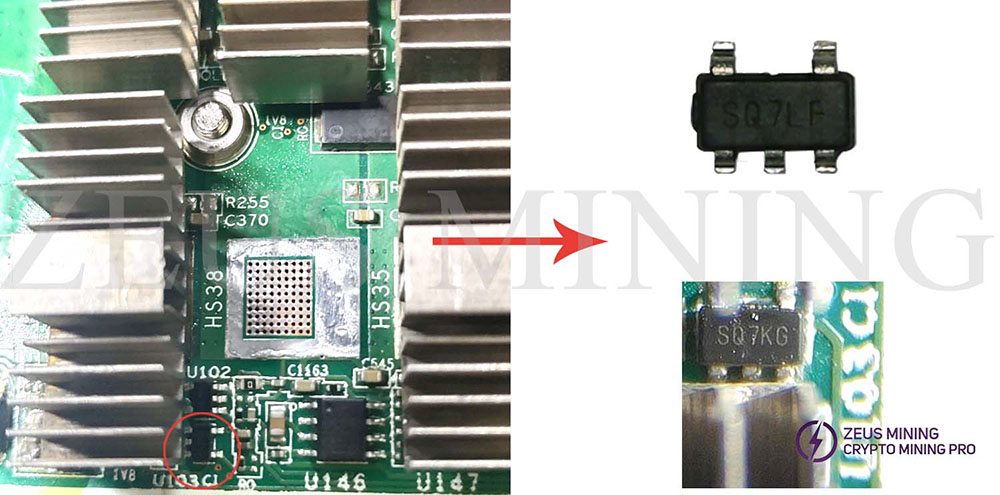
The SGM2036-ADJ is a low-power, low dropout, CMOS linear regulator in a SOT-23-5 package that provides up to 300mA output current with an input voltage between 1.6V and 5.5V, which is a low Perfect for high voltage, low power applications that extend battery life.
Voltage regulator chip: SP7KC
Position marker: U102
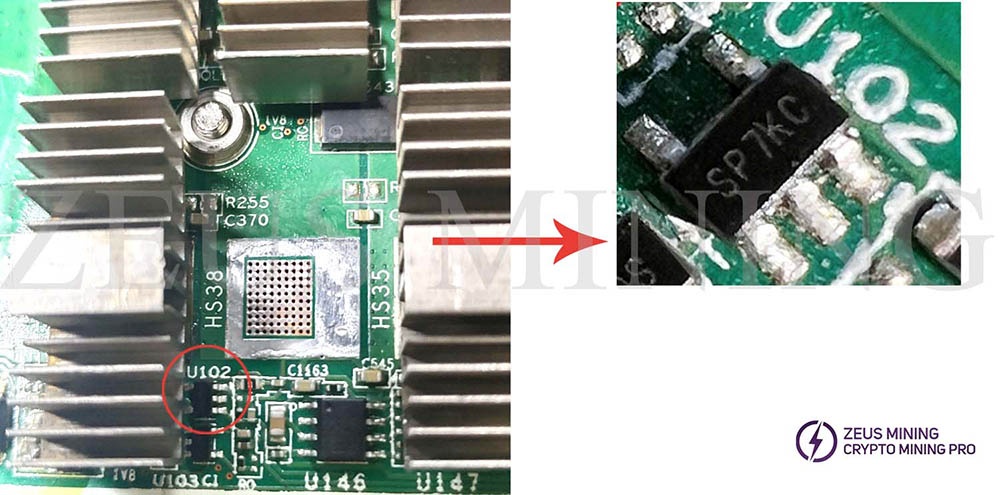
Antminer S19 hash board chip summary:
